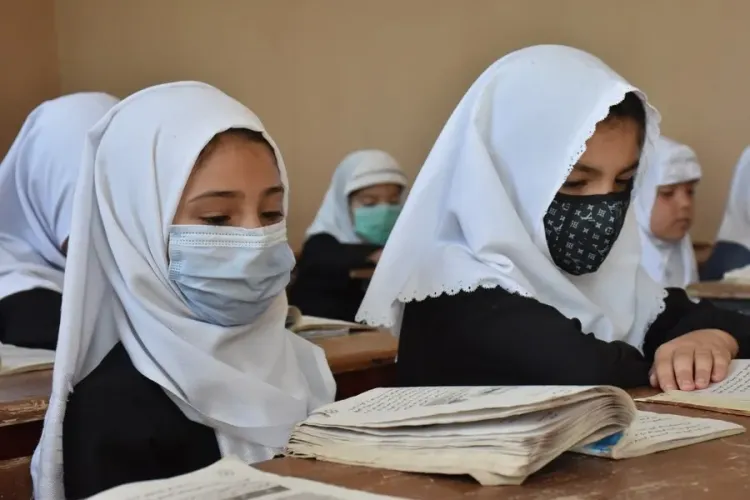Why Does UNICEF Urge the Taliban to Lift Restrictions on Girls' Education?

Synopsis
Key Takeaways
- UNICEF calls for the lifting of restrictions on girls' education in Afghanistan.
- Over 2.2 million girls may be excluded from education by 2025 if current restrictions persist.
- Restrictions lead to increased mental health issues and early marriages.
- The international community is urged to support Afghan girls' right to education.
- Empowering girls through education is vital for Afghanistan's future.
Kabul, Sep 17 (NationPress) The United Nations International Children's Emergency Fund (UNICEF) has called upon the Taliban to permit girls to receive education at all levels. On Wednesday, UNICEF highlighted the troubling reality that these restrictions have trapped girls within their homes, leading to serious mental health issues, an increase in child marriages, and early pregnancies.
The organization urged the Taliban to promptly remove these barriers and guarantee that every girl has access to education, ranging from primary school to higher education, as reported by Afghanistan's prominent news outlet, Khaama Press. It is important to note that the Taliban imposed a ban on secondary education for girls shortly after taking control in August 2021.
UNICEF Executive Director Catherine Russell expressed her alarm regarding the deteriorating mental health issues and the rising incidence of early marriages among Afghan girls who have been denied education for nearly four years.
In a statement released on Wednesday, UNICEF revealed that millions of girls are suffering due to the Taliban's restrictions. The agency cautioned that by the end of 2025, over 2.2 million adolescent girls could be excluded from the educational system.
Russell noted that the anticipated return of two million Afghan refugees from Pakistan and Iran in 2025 could further exacerbate the situation, increasing the number of girls unable to attend school. She warned that these restrictions not only deprive girls of academic learning but also rob them of essential social interactions, personal development, and opportunities to shape their futures.
She emphasized that Afghan girls are being denied their fundamental right to education, stating, "While millions of children across the globe are excitedly returning to classrooms for the new academic year, Afghan girls are unjustly denied this basic right," characterizing it as one of the defining injustices of our time.
UNICEF also voiced concern regarding the Taliban's exclusion of women from the workforce, asserting that such restrictions pose a threat to Afghanistan’s long-term stability and growth. The agency highlighted that a nation cannot flourish when half of its population is barred from contributing to national development and the workforce. The recent earthquake in Afghanistan underscored the urgent need for trained female health and social workers in a segregated society.
On September 8, the head of the UN Mission in Afghanistan (UNAMA), Roza Utunbayeva, marked International Literacy Day by advocating for educational access, especially for Afghan women and girls, as reported by Khaama Press. During her speech in Kabul, she emphasized that books are a vital source of knowledge and a pathway to sustainable well-being, stressing that equal access is crucial for Afghanistan’s future.
UNAMA warned that the Taliban's restrictions continue to obstruct girls from pursuing education in secondary schools and universities, a policy that has now persisted for a fourth consecutive year. UN officials cautioned that these educational restrictions on Afghan girls undermine both human rights and development, leaving Afghanistan further isolated and unprepared for the realities of the modern world.










